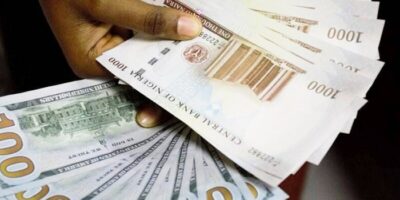Shell Posts Record Quarterly Profit Of $11.5bn, TotalEnergies $9bn

- Nigeria misses out in oil windfall as NNPC spends revenue after oil theft on subsidies, leading to inability to remit funds to foreign reserves, thereby deepening Naira’s woes
- In US, fuel currently sells for $2.01, UK sells for £1.87 per litre
Shell has launched a $6 billion share buyback scheme after posting its best profit for a second consecutive quarter as high energy prices and refining margins generated bumper earnings for the world’s oil and gas majors.
Europe’s largest oil company’s adjusted earnings, the profit measure most closely tracked by analysts — rose to $11.5 billion in the second three months of the year, breaking the record $9.1bn posted in the first quarter.
Oil majors and oil-producing countries have continued to reap bountifully from high international oil prices, leaving Africa’s biggest producer, Nigeria behind, due to its inability to meet its production quota.
Unfortunately, Nigeria has continued to miss out in the current oil windfall as NNPC limited spends whatever is left of its revenue after oil theft on subsidies, effectively leading to her inability to remit funds to foreign reserves, and consequently deepening Naira’s woes.
However, while per litre of gasoline in the US, for instance, sells for $2.01, same is sold for £1.87 per litre in the UK, while Nigeria has continued to move between N165 and sometimes N200, which is way cheaper than what the big economies like the US and the UK sell theirs.
According to Global Petrol Prices, the average price of gasoline around the world is 1.41 U.S. Dollar per litre. But there is substantial difference in the prices among countries.
As a general rule, richer countries have higher prices while poorer countries and the countries that produce and export oil have significantly lower prices.
One notable exception is the U.S. which, for instance, is an economically advanced country but has low gas prices. The differences in prices across countries are due to the various taxes and subsidies for gasoline.
All countries have access to the same petroleum prices of international markets but then decide to impose different taxes. As a result, the retail price of gasoline is different.
Meanwhile, Shell beat average analyst estimates of $11 billion and was more than double the $5.5 billion it recorded a year ago.
Shell produced less oil than in the first quarter but benefited from higher prices, reflecting the soaring cost of crude in April, May and June following Russia’s February invasion of Ukraine, according to Reuters.
Higher refining margins drove performance in its chemicals and products business, while it also noted “exceptionally strong” earnings from its gas and power trading business.
With volatile energy markets and the ongoing need for action to tackle climate change, 2022 continues to present huge challenges,
chief executive Ben van Beurden said.
Shell left its dividend at $0.25 a share but said that, with the $6 billion share buyback plan, total distributions to shareholders would be “significantly in excess” of 30 per cent of cash flow from operations.
The new round of share buybacks follows $8.5 billion of buybacks that were completed in the first half of the year. Net debt also fell to $46.4bn from $48.bn three months earlier.
A rapid recovery in demand following the end of pandemic lockdowns and a surge in energy prices, driven by Russia’s invasion of Ukraine, have boosted profits for energy companies after a two-year slump.
French rival TotalEnergies also reported on Thursday a record profit of $9.8 billion in the quarter and accelerated its buyback programme. United States rivals Exxon Mobil and Chevron report results are expected on Friday (today).
Oil and gas prices remained elevated in the quarter, with benchmark Brent crude averaging about $114 a barrel. Benchmark European natural gas prices and global liquefied natural gas (LNG) prices averaged an all-time high in the quarter.
Shell’s strong results reflected higher energy prices and refining margins, as well as strong gas and power trading, the company said, but were partly offset by lower LNG trading results.
Refining profit margins tripled in the quarter to $28 per barrel. They have weakened substantially in recent weeks amid signs of easing gasoline demand in the United States and Asia.
Shell said its refinery utilisation would increase to 90-98 per cent in the third quarter, compared with 84 per cent in the second quarter.
Its oil and gas production in the second quarter was down 2 per cent from the previous quarter to 2.9 million barrels of oil equivalent per day (boepd).
Shell’s LNG liquefaction volumes stood at 7.66 million tonnes in the second quarter, down from 8 million in the previous quarter. Volumes are expected to fall to between 6.9-7.5 million in the third quarter due to strikes at its Australian Prelude site and planned maintenance.
Shell used the surge in cash generation to further reduce its debt, which stood at $46.4 billion at the end of June, compared with $48.5 billion three months earlier. Its debt-to-capitalisation ratio, or gearing, declined to 19.3 per cent.

Justin Nwosu is the founder and publisher of Flavision. His core interest is in writing unbiased news about Nigeria in particular and Africa in general. He’s a strong adherent of investigative journalism, with a bent on exposing corruption, abuse of power and societal ills.













